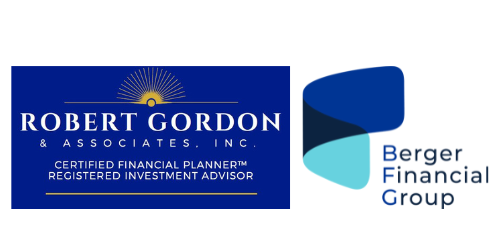Five Steps to Recession-Proof Your Finances
Submitted by Robert Gordon & Associates, Inc on September 16th, 2022
Set against a backdrop of outsized inflation and a wildly volatile stock market, the threat of a recession is enough to make almost anyone feel uneasy.
The first thing you should know is that a recession, defined as ‘a period of declining economic performance across an entire economy that lasts for several months,’ is a normal part of the economic cycle. Since World War II, we’ve experienced a recession about every five years, with an average length just under a year.
That said, recessions can cause rising unemployment, declines in stock values and other assets, and shrinking wages, so while we are eternal optimists, we won't dismiss the potential for very real short-term economic pain. But we can tell you that this isn’t a time to panic. Following are some positive steps that we can all take to ease the impact.
- Make yourself invaluable at work. Probably the harshest result of a recession is that people may lose their jobs—and have an even harder time finding a new one. Given the ‘great resignation’ that we’ve just experienced, this may sound far-fetched. But trust me, it can happen. If you're not in love with your current job, or feel that your opportunities are limited, or that your current employer may need to downsize, start to network now. Also start to research new job opportunities, and consider whether you need additional training or education to be competitive.
- Pay off expensive debt as soon as you possibly can. Paying high interest on credit cards is always a bad idea, but as interest rates rise, it’s going to get even more expensive. And just imagine how damaging that could be if you're out of work, even if for a short time. So start attacking that balance now, and don’t charge any more if you can possibly avoid it.
- Save as much as you can. It’s always wise to have a healthy emergency fund, but that extra cushion becomes even more important during a recession. So divert those funds for any unnecessary purchases into your savings account (this is the time to flex those ‘live within your means’ muscles, big time). Resist the urge to fall into the 'buy now, pay later' trap. We generally recommend that you have at least enough to cover three months of nondiscretionary expenses, but in the face of a recession, I would try to increase that to six or more months. That way, should you lose your job or have to take a lower paying job, you won’t be in a jam or forced to sell investments when they’re potentially at a relative low.
- Stay invested—and diversified. It’s easy to get spooked by dropping stock market prices, but this is not the time for you to bail. By getting out now, you may only lock in temporary losses. In fact, this may just be the ideal time to increase your holdings—while prices are relatively down. Of course, the usual advice about diversification and asset allocation still applies, so keep a careful eye that your investments stay balanced between stocks, bonds, and cash according to your time frame for using the money and your tolerance for risk. In short, it’s key to maintain a long-term perspective. Yes, you may suffer some short-term losses, but history has shown that the market will most likely recover over time.
- Make contingency plans. Hopefully you won’t have to implement it, but just in case, it can be reassuring to know that you have a plan B. If your finances get too tight for comfort, could you cut unnecessary expenses? Delay planned larger purchases or home projects? Get a side gig? Chances are you won’t have to act on any of these options, but it can be best to strategize ahead of time just in case.
There's no question that a recession can lead to financial hardship. But if we do head down that road, and you’re prepared for what may happen, you'll be in the best possible shape to come out the other end not only unharmed, but with a deeper understanding of what it means to wisely manage your finances. Most of our clients have seen this before and know the correct path to take, but if this is your first market downturn, know it most certainly won’t be your last and how you react in tough times will have a much greater impact on your finances compared to how you react when the market sets another all time high.
We have healthy and productive conversations about personal financial topics every day. If you struggle with feeling confident about your where your personal finances are now, or where you see them going, give a Certified Financial Planner™ Professional at RGA a call TODAY to see if we can help.

